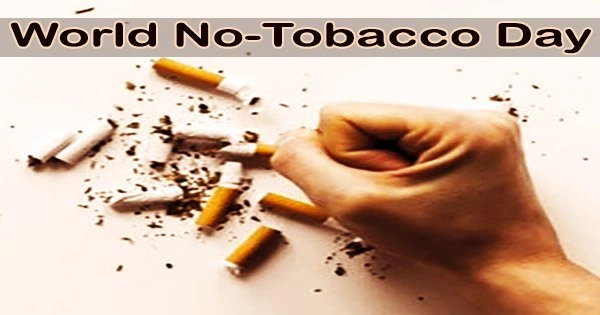World No Tobacco Day (WNTD) is observed around the world annually on May 31st. It is a global initiative led by the World Health Organization (WHO) to raise awareness about the health risks associated with tobacco use and to advocate for effective policies to reduce tobacco consumption. This year’s theme is “Grow food, not tobacco”. The 2023 global campaign aims to raise awareness about alternative crop production and marketing opportunities for tobacco farmers and encourage them to grow sustainable, nutritious crops. It will also aim to expose the tobacco industry’s efforts to interfere with attempts to substitute tobacco growing with sustainable crops, thereby contributing to the global food crisis.
The primary goal of “World No Tobacco Day” is to highlight the detrimental effects of tobacco on individuals’ health and the overall public health. Tobacco use is a leading cause of preventable deaths worldwide and is responsible for numerous health problems, including various types of cancer, heart disease, respiratory diseases, and other chronic conditions.
This yearly celebration informs the public on the dangers of using tobacco, the business practices of tobacco companies, what WHO is doing to fight the tobacco epidemic, and what people around the world can do to claim their right to health and healthy living and to protect future generations.
Each year, the WHO chooses a specific theme for “World No Tobacco Day” to focus on a particular aspect of tobacco control. The theme may address issues such as the impact of tobacco on lung health, the dangers of tobacco industry marketing tactics, or the importance of providing assistance to individuals who want to quit smoking.
The tobacco industry often touts itself as an advocate for the livelihood of tobacco farmers. This is a far cry from the truth. The intensive handling of insecticides and toxic chemicals during the cultivation of tobacco contributes to many farmers and their families suffering from ill health. Further, unfair contractual arrangements with tobacco companies keep farmers impoverished, and the child labour that is often woven into tobacco cultivation interferes with the right to education and is a violation of human rights.
The Member States of the World Health Organization (WHO) created “World No Tobacco Day” in 1987 to draw global attention to the tobacco epidemic and the preventable death and disease it causes. In 1987, the World Health Assembly passed Resolution WHA40.38, calling for 7th April 1988 to be a “a world no-smoking day.” In 1988, Resolution WHA42.19 was passed, calling for the celebration of World No Tobacco Day, every year on 31st May.
The day also aims to raise awareness of the widespread use of tobacco and its harmful health effects, which currently cause more than 8 million deaths annually worldwide, including 1.2 million fatalities from second-hand smoke exposure in non-smokers.
On “World No Tobacco Day,” numerous activities and initiatives take place globally to promote tobacco control. These can include public awareness campaigns, educational programs in schools and communities, smoking cessation support, advocacy for stronger tobacco control policies, and various events to encourage individuals to quit smoking.
Each year, the WHO selects a theme for the day in order to create a more unified global message for WNTD. This theme then becomes the central component of the WHO’s tobacco-related agenda for the following year. The WHO oversees the creation and distribution of publicity materials related to the theme, including brochures, fliers, posters, websites, and press releases.
The WHO Framework Convention on Tobacco Control offers specific principles and policy options on the promotion of economically viable alternatives for tobacco workers, growers and individual sellers, and on enhancing protection of the environment and the health of people. The WHO serves as a central hub for fostering communication and coordinating WNTD events around the world.
The ultimate objective of “World No Tobacco Day” is to raise awareness, encourage individuals to quit tobacco use, and prevent young people from starting smoking. Since 1988, the WHO has presented one or more awards to organizations or individuals who have made exceptional contributions to reducing tobacco consumption.
















